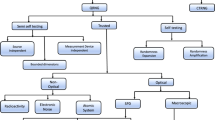Abstract
We present an efficient randomized algorithm for leader election in large-scale distributed systems. The proposed algorithm is optimal in message complexity (O(n) for a set of n total processes), has round complexity logarithmic in the number of processes in the system, and provides high probabilistic guarantees on the election of a unique leader. The algorithm relies on a balls and bins abstraction and works in two phases. The main novelty of the work is in the first phase where the number of contending processes is reduced in a controlled manner. Probabilistic quorums are used to determine a winner in the second phase. We discuss, in detail, the synchronous version of the algorithm, provide extensions to an asynchronous version and examine the impact of failures.
Similar content being viewed by others
References
Agrawal D., Egecioglu Ö. and Abbadi A.E. (1997). Billiard quorums on the grid. Inf. Process. Lett. 64(1): 9–16
Bawa, M., Garcia-Molina, H., Gionis, A., Motwani, R.: Estimating aggregates on a peer-to-peer network. Technical Report, CS Department, Stanford University (2003)
Boyd S., Diaconis P. and Xiao L. (2004). Fastest mixing markov chain on a graph. SIAM Rev. 46(4): 667–689
Cidon, I., Mokryn, O.: Propagation and leader election in a multihop broadcast environment. In: DISC ’98 Proceedings of the 12th international symposium on distributed computing, pp. 104–118, Springer, London (1998)
Dolev D., Dwork C. and Stockmeyer L. (1987). On the minimal synchronism needed for distributed consensus. J. ACM 34(1): 77–97
Ferreira R.A., Grama A. and Jagannathan S. (2006). Plethora: a locality enhancing peer-to-peer network. J. Parallel Distrib. Comput. 66(2): 257–273
Ferreira, R.A., Ramanathan, M.K., Grama, A., Jagannathan, S.: Randomized protocols for duplicate elimination in peer-to-peer storage systems. In: Proceedings of The Fifth IEEE international conference on peer-to-peer computing, Konstanz, Germany (2005)
Fetzer C. and Cristian F. (1999). A highly available local leader election service. IEEE Trans. Softw. Eng. 25(5): 603–618
Frederickson G.N. and Lynch N.A. (1987). Electing a leader in a synchronous ring. J. ACM 34(1): 98–115
Gkantsidis, C., Mihail, M., Saberi, A.: Random walks in peer-to-peer networks. In: Proceedings of IEEE INFOCOM, 2004, Hong Kong (2004)
Gnutella. http://gnutella.wego.com/
Gupta, I., Renesse, R., Birman, K.P.: A probabilistically correct leader election protocol for large groups. In: DISC ’00 Proceedings of the 14th international conference on distributed computing, pp. 89–103, Springer, London (2000)
Hastings W. (1970). Monte carlo sampling methods using markov chains and their applications. Biometrika 57: 97–109
Horowitz K. and Malkhi D. (2003). Estimating network size from local information. IPL J. 88(5): 237–243
Joung Y. (2000). Asynchronous group mutual exclusion. Distrib. Comput. 13(4): 189–206
King, V., Saia, J.: Choosing a random peer. In: PODC ’04 Proceedings of the twenty-third annual ACM symposium on principles of distributed computing. pp. 125–130, New York (2004)
Kushilevitz, E., Rabin, M.O.: Randomized mutual exclusion algorithms revisited. In: PODC ’92 Proceedings of the eleventh annual ACM symposium on principles of distributed computing. pp. 275–283 (1992)
Lin, S., Lian, Q., Chen, M., Zhang, Z.: A practical distributed mutual exclusion protocol in dynamic peer-to-peer systems. In IPTPS, pp. 11–21 (2004)
Lynch, N.A.: Distributed algorithms. Morgan Kaufmann Publishers, Inc. (1996)
Maekawa M. (1985). A \({\sqrt{N}}\) algorithm for mutual exclusion in decentralized systems. ACM Trans. Comput. Syst. 3(2): 145–159
Malkhi D., Reiter M., Wool A. and Wright R. (2001). Probabilistic quorum systems. Inform. Comput. 170(2): 184–206
Metropolis N., Rosenbluth A., Rosenbluth M., Teller A. and Teller E. (1953). Equations of state calculations by fast computing machines. J. Chem. Phys. 21: 1087–1092
Mullender S.J. and Vitanyi P.M.B. (1988). Distributed match-making. Algorithmica 3: 367–391
Psaltoulis, D., Kostoulas, D., Gupta, I., Birman, K., Demers, A.: Practical algorithms for size estimation in large and dynamic groups. Springlass project at Cornell (2004)
Rabin M.O. (1982). N-process mutual exclusion with bounded waiting by 4log 2 N valued shared variable. J. Comput. Syst. Sci. 25(1): 66–75
Ratnasamy, S., Francis, P., Handley, M. Karp, R.M., Shenker, S.: A scalable content-addressable network. In: SIGCOMM ’01 Proceedings of the 2001 conference on Applications, technologies, architectures, and protocols for computer communications, pp. 161–172, New York (2001)
Rowstron, A.I.T., Druschel, P.: Pastry: Scalable, decentralized object location, and routing for large-scale peer-to-peer systems. In: Middleware 2001 Proceedings of the IFIP/ACM international conference on distributed systems platforms Heidelberg, pp. 329–350, Springer, London (2001)
Schooler, E.M., Manohar, R., Chandy, K.M.: An analysis of leader election for multicast groups. Technical Report, ATT Labs-Research, Menlo Park (2002)
Stoica I., Morris R., Liben-Nowell D., Karger D.R., Kaashoek M.F., Dabek F. and Balakrishnan H. (2003). Chord: a scalable peer-to-peer lookup protocol for internet applications. IEEE/ACM Trans. Netw. 11(1): 17–32
Szpankowki W. (2001). Average case analysis of algorithms on sequences. Wiley, New York
Tanenbaum A.S. and Steen M.V. (2002). Distributed systems: principles and paradigms. Prentice Hall, Englewood Cliffs
Tel G. (1994). Introduction to distributed algorithms. Cambridge University Press, Cambridge
Author information
Authors and Affiliations
Corresponding author
Rights and permissions
About this article
Cite this article
Ramanathan, M.K., Ferreira, R.A., Jagannathan, S. et al. Randomized leader election. Distrib. Comput. 19, 403–418 (2007). https://doi.org/10.1007/s00446-007-0022-4
Received:
Accepted:
Published:
Issue Date:
DOI: https://doi.org/10.1007/s00446-007-0022-4




